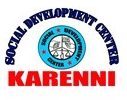By Sue Meh for Kantarawaddy Times. August 2014.
Translated and edited by SDC students, staff and volunteers.

For a long time, the eastern side of the Salween River had a lot of natural greenery, resources and animals. If there is a sustainable ceasefire and true peace, Karenni Refugees hope they can return to live there interdependent on the natural resources. But, their hope cannot materialise. The government and the Karenni National Progressive Party (KNPP) have signed and had a ceasefire agreement since 2012. During the last three years, there has been a lot of deforestation on the eastern side of the Salween River.
Nobody can say if the ceasefire is stable enough for safe refugee repatriation. During the ceasefire period, some of the refugees have gone back to visit their old area. There is less forest than before. In Karenni Camp 1, there are 15,000 people. Khu Ee Reh said they are hopeful and excited to go back in Karenni State, but they are not sure. “In my opinion, I don’t want them to cut down more trees. I want them to only use wood from trees that have already been cut down. We have told them they have no right to cut down more trees. So, if they cut down more trees the forest will disappear. Because we want to return to our homeland, we are dependent on these trees. If there is no forest, we will be depressed”
During 1995, when KNPP had a ceasefire, for three months, with the Burmese government, there were 100 villages on the eastern side of the Salween River. These villages experienced deforestation in this period. Even though in 1995 to stop the deforestation repeating itself, they agreed, with villager’s requests to protect and replant trees, Private companies have returned and deforestation has continued. “If we return, the trees for living are gone. In this area, there are only a few trees left around Sotashar Mountain. They are ignoring me.” said, forest defender committee member, Khu Heh Reh. The main point is members of the armed groups, KNPLF and KNPP, have participated in logging this area.
KNPP has set up a company to find funds for themselves. Their objective is good but this way is not good for the public. The public are encouraged to cut down trees by this. If they do like this, there will be more corruption and logging some KNPP leaders said. KNPP general, Aung Myant said, “No one asked, how can you help us? Usually, they only ask to cut down trees, mine lead and borrow money. This is my honest experience. Our people only have this viewpoint. They only ask to borrow money so they can buy a car. They want a car because other people have cars and they don’t have enough money. They ask me where to find money.”
On April 16th, when UNHCR and the refugee committee discussed plans for repatriation, they talked about international standards not about places. The three main requirements for repatriation are that it is voluntary, safe and with dignity. The refugees should understand these three points clearly so they can go back freely, said refugee committee member, Naw Htu Lwe.
The environmental exploitation has broken some refugees’ dreams of returning. Some have resettled to a third country instead. Many of the people who would like to return to their native land try to participate as a forest defender. However, many of the members have resettled and the organisation is becoming increasingly weaker. One member of this committee, Khu Ee Reh said “At last, if I have no choice to go anywhere else, I must go back. When I return, I think we will need to loot resources to survive.”
